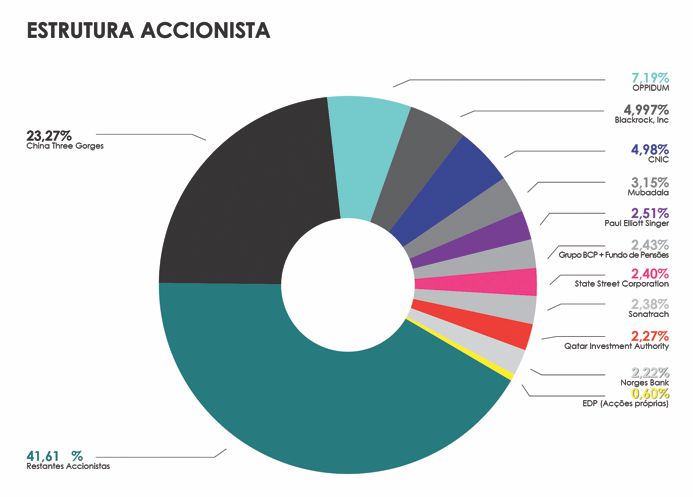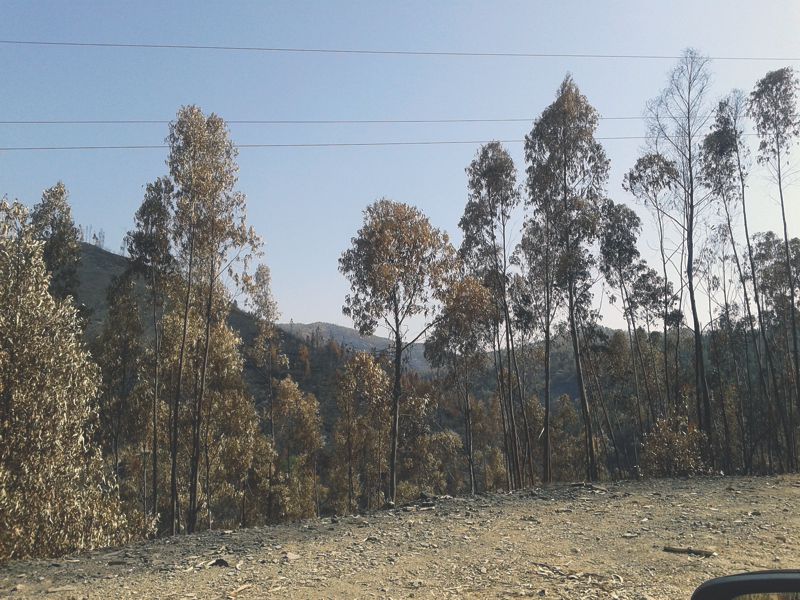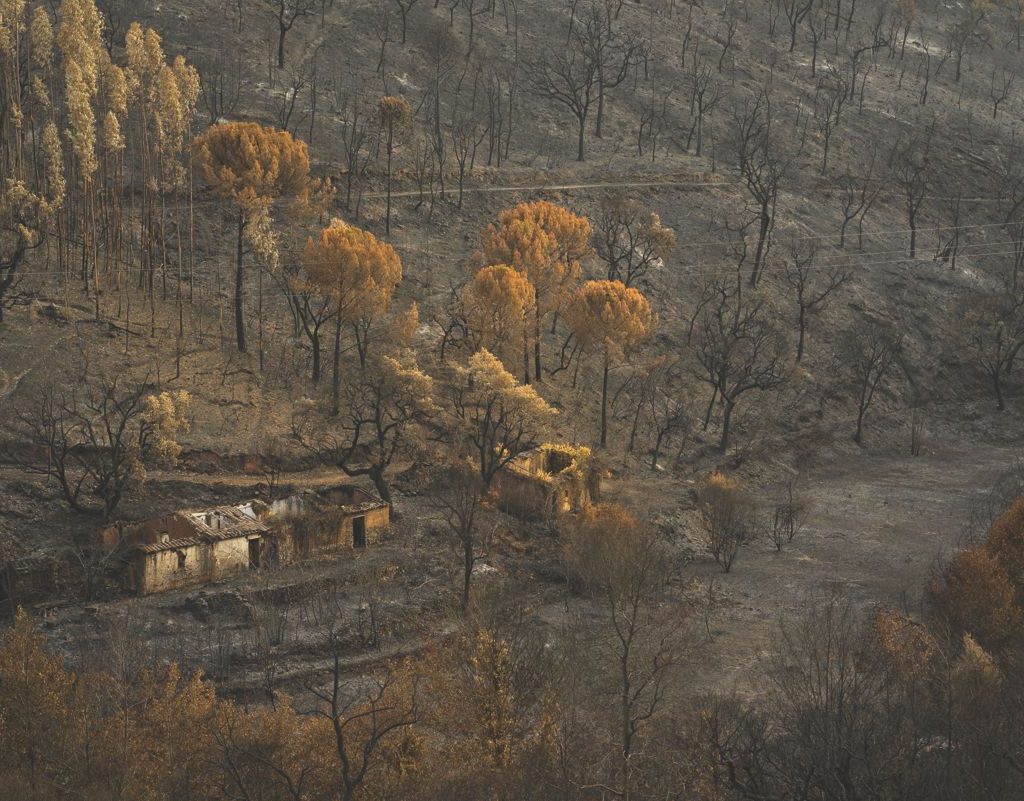Without it nothing works. And it’s been that way since 1976. It’s a business worth millions. Only someone who’s on the inside really knows what’s going on in there. It’s one of the big businesses that are still very profitable and in which the state and governments, regardless of their politics, continue to have the last word and where, until recently, it was the state itself that collected the profits. It’s become a legal drug, electricity. The electricity business in Portugal has been monopolised for too long. Permission to sell electricity allows you to accumulate wealth and arrogance that are unimaginable. Because we all need electricity. And it’s a monopoly because we only have one operator to provide us with it. And this enormously lucrative business of the monopoly EDP Distribuição is being gradually phased out, because more and more EU laws coming from Brussels are changing the rules of the game for the various forms of distribution and production of electricity. The keyword that is opening the doors to this “safe” is “market liberalisation”. Let others participate. And the Spanish from Oppidum, the Americans from Capital and Black Rock and the Chinese from Three Gorges Co-operation have appeared. Everyone who wants to can apply for their slice of the cake. And now the cooperatives and municipalities will also come in, hoping that democracy will guarantee them the same conditions of access to a slice of that cake. The day will come when there will be no monopoly. The transition phase is until the end of 2021. So we have two more years attached to EDP.
It is said that those who work at EDP, and there are always more than 12,000 people, have their work guaranteed for decades and will never have any concerns. We will see if this situation is maintained or if a more sustainable economic philosophy is developed in Portugal and in EDP itself. We will see if the mechanisms for controlling democracy have developed so that they have practical effects. Because electricity, like water, is nonetheless a common good. And also in the case of water, international companies want to have control over licenses, bottling, distribution and sale, even control over effluents. And everywhere we have the Chinese wanting control. The company registered under the name Be Water, SA. and its subsidiary since 2013, called Beijing Enterprises Water Group, obtained licenses in the Algarve and in Mafra, in both the water and ETAR wastewater business. Also with regard to electricity and its distribution by high and medium voltage lines the Chinese are a constant presence. It’s all in foreign hands at EDP Distribuição SA.
That’s what we want to talk about. The Carnation Revolution was 45 years ago. What positive developments have there been in the economy of this country in these 45 years? Was the monopoly really split up? What has improved in the electricity market? Have our living conditions improved? And why talk about EDP Distribuição SA in this case?
We love Energy?
In EDP activity reports we find that environmental values are not adequately accounted for. This is why nature is not treated correctly. Monopolies act primarily for the interests of their shareholders and all the time they only think about money and profits – and growth. But that is a bad principle. Dealing with resources entails more responsibility in both production and distribution. Sustainability is not just a buzzword, it must actually be lived, as the people of tomorrow also have the right to inhabit a planet with the flora and fauna intact. However we know that two out of every three forest fires in Portugal are caused by discharges from the high and medium voltage lines of the monopoly EDP Distribuição SA (Visão, interview with Professor Dr. Domingos Xavier Viegas, 2.6.2019, by Hugo Séneca), who has not fulfilled its legal duties for years. And the government passively pretends not to see. Why? The Government, together with the GNR and the PJ, would have the possibility of clarifying this situation. And why don’t they? Is it because the Government, through PARPUBLICA, has long been a shareholder of the EDP monopoly, and there will still be a conflict of interests here today? It was a shareholder of the parent company EDP Universal SA until 2013 and even today there are strong links between politics and energy.
Eucalypse Now
The subsidiary EDP Distribuição, which we intend to talk about here, has a legal obligation to meticulously maintain the network of 83,000 km of high voltage cables and 68,000 km of medium voltage (RC report EDP D 2018, page 76 et seq.). There are 28,600 km of high voltage cables which run through forests, usually monoculture eucalyptus plantations. A cultivation of which we have an area here that is three times more in than in neighbouring Spain. For decades, we have had 10.5 million people in a gunpowder barrel made of 1.5 million hectares of  eucalyptus. Where power cables pass, there can be no forest within 12.5 metres, both horizontally and vertically, and on both sides. In the case of medium voltage cables, the distance is 7.5 meters. Trees, especially eucalyptus, should not touch or even hit the lines when there is wind. This is the only way to avoid discharges that have caused forest fires in recent years. Almost all the major fires of recent years in Portugal, as explained by the renowned Professor Dr. Domingos Xavier Viegas of the University of Coimbra, in an interview with Visão magazine, were caused by discharges from medium or high voltage cables, both the Pedrogão Grande fire and also possibly that of Monchique.
eucalyptus. Where power cables pass, there can be no forest within 12.5 metres, both horizontally and vertically, and on both sides. In the case of medium voltage cables, the distance is 7.5 meters. Trees, especially eucalyptus, should not touch or even hit the lines when there is wind. This is the only way to avoid discharges that have caused forest fires in recent years. Almost all the major fires of recent years in Portugal, as explained by the renowned Professor Dr. Domingos Xavier Viegas of the University of Coimbra, in an interview with Visão magazine, were caused by discharges from medium or high voltage cables, both the Pedrogão Grande fire and also possibly that of Monchique.

The investigation into what caused these catastrophic fires, what their origin was, how the Town Hall and the Government reacted, how Civil Protection, which was responsible for coordinating the cooperation of the fire brigade, managed the situation, what preparation there was for these disasters, requires a decisive and explanatory piece of work: both in Parliament and in the courts. If nothing is done, nothing will change. Why was control lost in fighting the fire and why did these disasters happen? You have to put your hand in the wound so that these mega fires do not recur. Only if the Government and Civil Protection are better prepared, if we know what we are doing wrong in Portugal and how we can amend it, will we be acting attentively and taking care of our country. Only in this way can we also improve fire fighting. We will learn about the enormous damage that a fire means and the importance of reforestation with indigenous species.

Life in the city of the blind
Just like in football, the clock is ticking. António Costa’s Government attempts to get away. The opposition has internal problems, is weak and playing poorly, scoring own goals and always losing the ball. It doesn’t go beyond 25 to 30 percent and any day it will no longer matter: it will just be a group of old players. On 6th October, a new Parliament and a new Government will be voted in. And if the opposition took the reins, would politics be different and better suited to guaranteeing a good future? Portugal needs more winners. And this is part of the legal and judicial responsibility of those who cause forest fires. The key word is “compensation”. Why can the monopoly EDP Distribuição SA, which is failing to maintain its high and medium voltage cables, continue to make millions every year without having to compensate the victims of the fires? This policy that exploits and harms nature and people cannot be continued. With this policy we will always continue to have these fires again. We will only stop having fires when we are all winners and live the philosophy of sustainability, when it becomes part of ourselves. The climate crisis we are experiencing is above all a social, economic and spiritual crisis that affects everyone.
A lasting peace will reign in Portugal only when there are maximum winners to a minimum of losers. However, the fires turned the inhabitants of the interior into losers. Ignoring disasters can’t be good. Politics in Lisbon returns to daily life as if nothing had happened. But it’s tragic to have people who have lost a family member, their house – or their animals. And the regions and municipalities that were hit by the fires also lost everything. Pedrogão Grande, Lousã, Oliveira do Hospital, Figueiró dos Vinhos, Castanheira de Pera, Monchique, and many other parishes have lost their economic base, nature and the forest. What loss do the fires we have every year mean? It is also about the future: the interior has no vision for the future. Beyond the economic aspects, fires remain a threat that can be repeated at any moment …
… if EDP Distribuição is not required to assume its responsibilities. Municipalities and citizens on the brink of bankruptcy are a testament to the incompetence of any government. And the lack of future prospects constricts people even more. Many already think only of leaving the country as soon as they can, or of moving from the countryside to the city, because they feel safer there. Most just want to forget what happened. They want to have a normal life again, their daily lives back. But how will they achieve it if they have not overcome the trauma? Working through the past, the drama of the fires, the events and the trauma they have caused, brings up much of what has been ignored, but which weighs on everyday life and this spiritual work can mean individual and collective relief. Any wound requires its treatment, and treatment is part of the open conversation about what happened – someone who understands us and who gives us generous, un-bureaucratic support. Is this what the victims have received?
No. The Government of António Costa remains silent. However, as they did not prevent the disasters of 2017 and 2018, along with their monopolist they should have a duty to provide free psychological support and to offer compensation with very little bureaucracy. How do you comfort someone who was in the ashes? It’s not true that time heals everything, much less so when you sweep it under the carpet. And this is how the circle of this story closes. We have a government whose Minister of Internal Affairs, 15 months after the fires, shut the police investigations’ report in a drawer under lock and key so nobody knows that the fire, which according to the first assessments caused damage of 500 billion euros, was caused by the negligence and misconduct of the monopoly EDP Distribuição SA for failing to maintain a 15 kW cable. And on October 6th, should the voter re-elect such a government, which doesn’t protect its citizens from fire, has no power to limit the eucalyptus dominance of the paper industry, which hides the permanent conflicts of interests with the monopoly EDP Distribuição SA and which is too cowardly to face reality?
Do voters have any political power? No one, neither the Government nor the monopoly, wants to accept the ecological and economic responsibilities of negligence. But as always there is still the legal route, for example before the European Court in Strasbourg. In view of this, the injured parties may require António Costa’s government to submit reports of the police investigation, may sue the monopoly for the payment of compensation and demand that the protection of people and property guaranteed by the Constitution be complied with. Only when it becomes clear who has to pay the bill and EDP and its shareholders feel the loss in their wallets will the thinking and attitude of the monopoly change – and all players will take better care of their country.
 Eco123 Revista da Economia e Ecologia
Eco123 Revista da Economia e Ecologia

